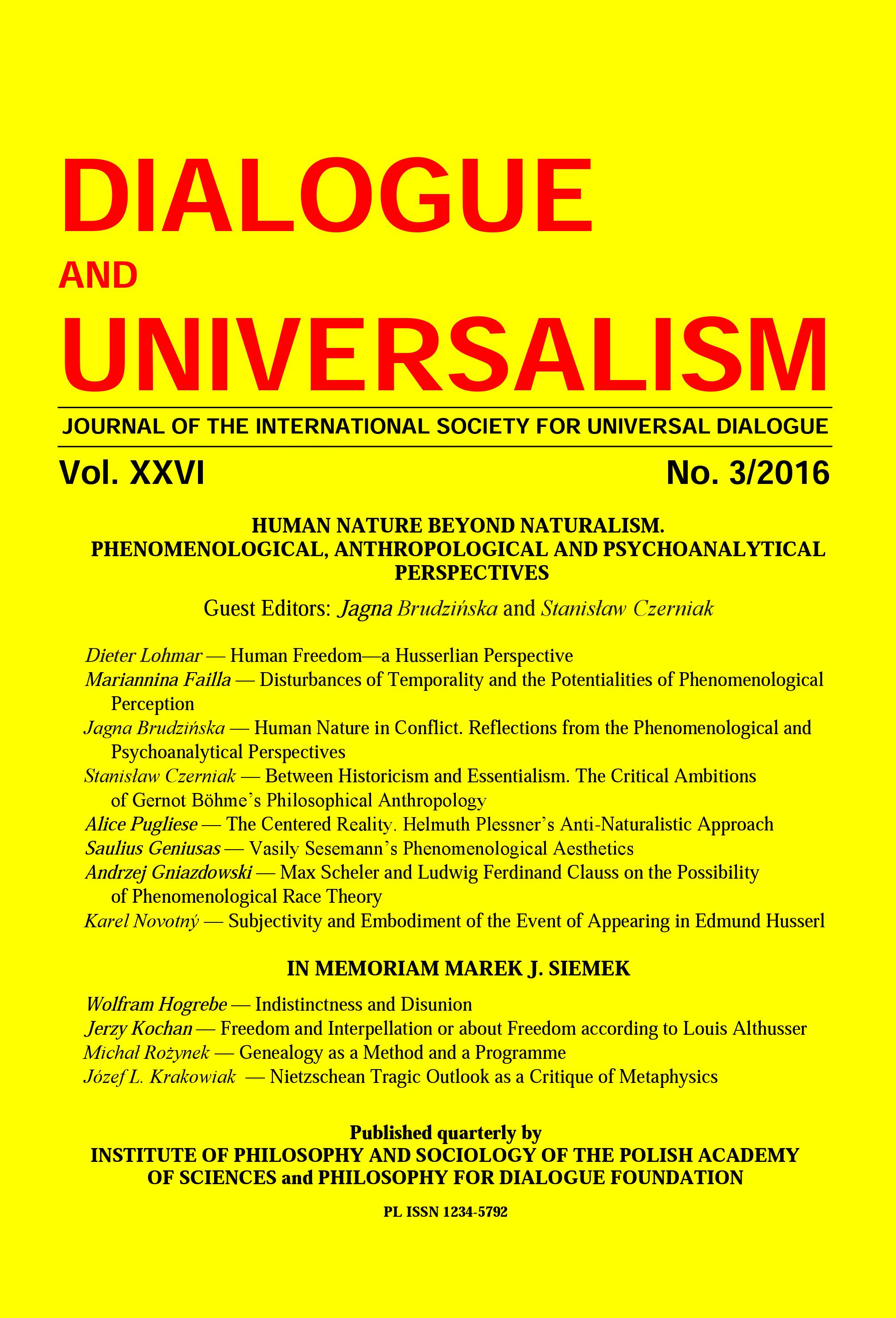THE ORIGINS OF LINGUISTIC ANTHROPOLOGY —THE POSITIONS OF JOHANN GOTTFRIED HERDER AND ARNOLD GEHLEN
THE ORIGINS OF LINGUISTIC ANTHROPOLOGY —THE POSITIONS OF JOHANN GOTTFRIED HERDER AND ARNOLD GEHLEN
Author(s): Rafał MichalskiSubject(s): Anthropology, Philosophy, Social Sciences, History of Philosophy
Published by: Instytut Filozofii i Socjologii Polskiej Akademii Nauk
Keywords: anthropology; language; deficient being; relief; ontogenesis; sensorimotor process; functional cycle; excess of drives; flood of stimulation
Summary/Abstract: This article attempts to present Gehlen’s concept of language in the context of his project of philosophical anthropology. The emphasis will be put on showing the role of language in: 1) the formation of motor and sensory imagination, 2) the crystallization of human drives and, finally, 3) the development of cognitive competences. Gehlen refers in his project directly to the thoughts of Herder, and therefore—according to the chrono-logical order—a reconstruction of the origins of “the linguistic anthropology” will start from outlining the main objectives of Herder’s philosophy of language (the first chap-ter), and then will consider Gehlen’s considerations devoted to the genesis of language competence and to the impact of speech for the constitution of human self-knowledge (second chapter).
Journal: Dialogue and Universalism
- Issue Year: 2016
- Issue No: 3
- Page Range: 77-94
- Page Count: 18
- Language: English
- Content File-PDF

